Pupil Referral Units: The children beyond mainstream education - and the schools that turn their lives around
What happens to young people who've been excluded from mainstream school? Oscar Quine is given rare access to the extraordinary work being done in Pupil Referral Units
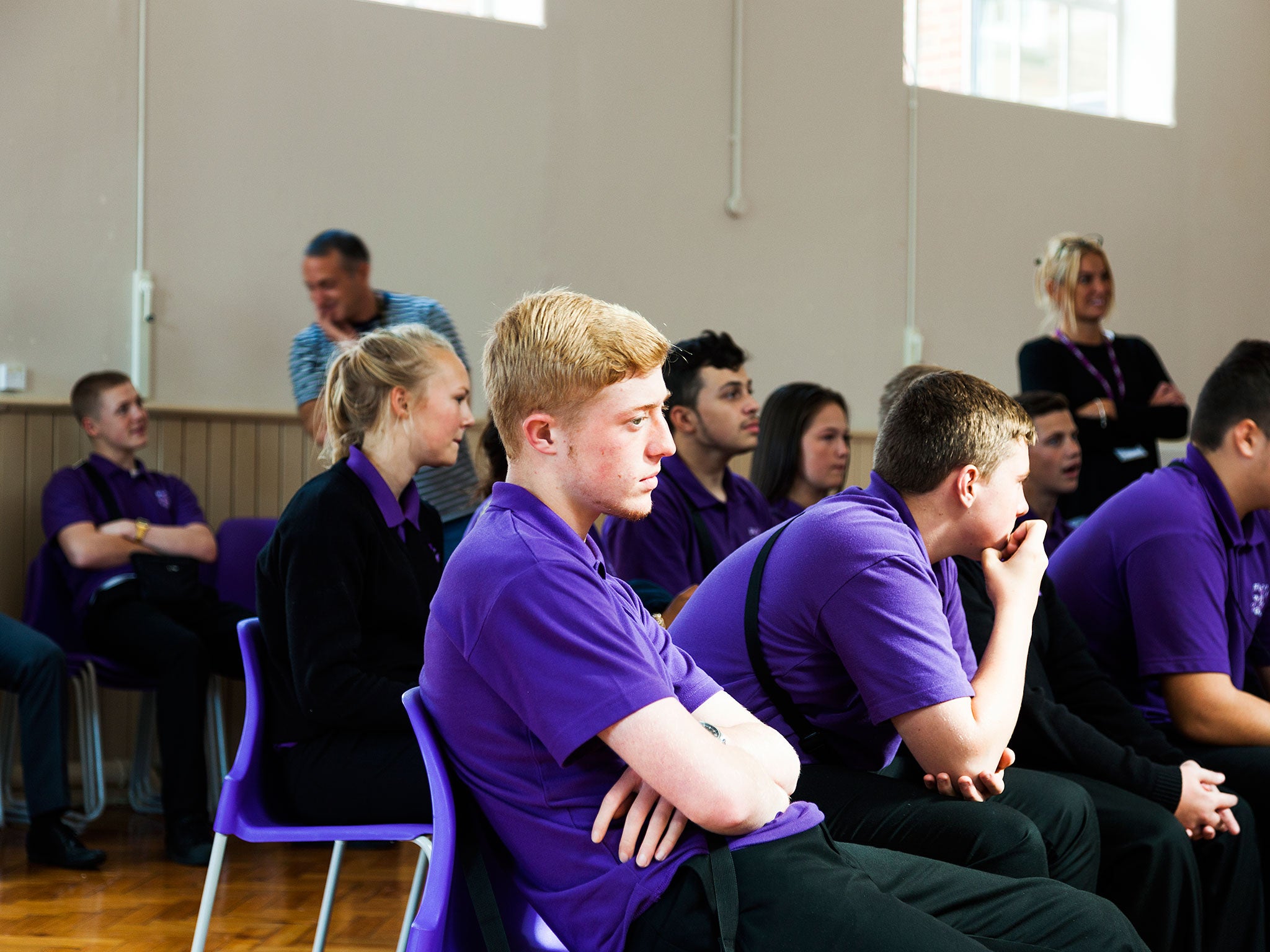
Emma Bradshaw is standing behind her desk, phone held to one ear, the fingers of her other hand tapping at an iPad, while members of her staff fly in and out of the room. Headteachers' offices aren't normally like this, but the flurry of activity is for a good reason. Two pupils – let's call them Ben and Kirsty – are proving seriously disruptive. Brother and sister, they come from a troubled background.
An "incident" occurred at their home that morning and social services have been called. Kirsty, says Bradshaw, has been "effing and blinding" since she arrived at school. She has been placed in isolation by staff and now they are waiting for her escort – provided by social services – to come and remove her.
"They've both got a lot of stuff going on in the background," Bradshaw says. "A lot of domestic violence. All the family's kids ended up in care and we've had three of them here." One of Bradshaw's deputy heads comes in. "If the escort comes and Kirsty gets lairy we'd have to ring 999, wouldn't we?" she asks. Bradshaw takes a moment before answering. "We want to pre-empt that. We don't want to be calling 999."
A fixed point at the centre of this ordered disorder, her shirt-sleeves rolled up as if ready for action, Bradshaw, 47, is the headteacher of The Limes College in the outer London borough of Sutton, once part of Surrey. It is not the type of secondary school that the vast majority of the country's pupils attend. It is a Pupil Referral Unit (PRU) – a school that accommodates the most troubled and disruptive of pupils, fulfilling local authority obligations to educate all children, including those expelled from mainstream schools.
PRUs also provide education for teenage mothers, and children with physical and mental health issues that prevent them attending mainstream school. The aim is to put as many pupils as possible back on an even keel and then reintroduce them to mainstream schools. "Children will often come to us in moments of chaos," says Bradshaw. "Some of these kids have had more things happen to them in the first 10 years of their lives, will have had more emotions to process, than you and I will have in a lifetime."
This is a branch of the education system that most people don't know about, or perhaps would rather not think about. And if they do think about PRUs, they probably imagine them to be the last refuge of the worst "problem kids", their task less one of education than containment, the essence of "underclass Britain". The truth, it turns out, is not like that at all.
Despite their additional pressures, 24 per cent of PRUs matched The Limes in achieving an "Outstanding" rating in Ofsted's most recent round of inspections – compared with only 11 per cent of mainstream schools.
The current incarnation of PRUs came about in 1993 during John Major's government and there are now just under 400 in England and Wales. More than 20,000 pupils are catered for by "alternative provision", the umbrella term under which PRUs fall. Because of the need for a high staff-to-student ratio, the units tend to be small, with some teaching just a handful of pupils. The largest – of which The Limes is one – have capacity for around 120.
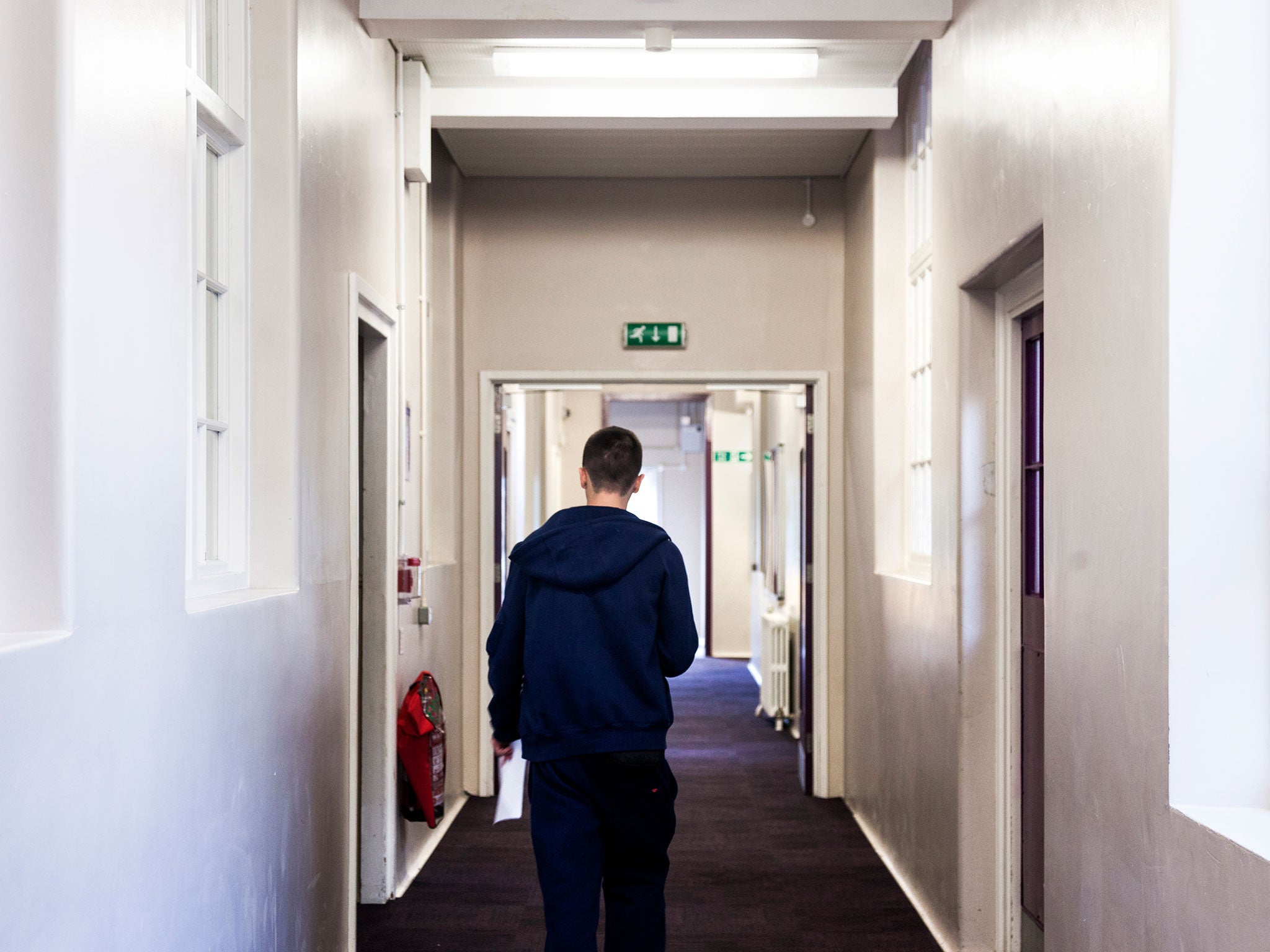
But just as PRUs seem to be cracking the conundrum of how to teach Britain's "unteachables", they find themselves entering uncharted territory. Many are concerned that government cuts to the child-care agencies that PRUs work closely with are putting too much pressure on the schools, and that at-risk children may fall through the holes opening in the welfare safety net. Their fears are stark: the London riots, the Rochdale child abuse scandal and the cases involving Damilola Taylor and Victoria Climbié are mentioned by PRU headteachers I talk to.
So how do you teach children trying to cope with so much more than what's being presented to them on the blackboard? In many regards, PRUs are very much like mainstream schools: they follow similar hours; pupils eat together in canteens. But lessons are different. At The Pendlebury Centre PRU in Stockport, I sit in on a Key Stage 3 humanities class. The children are aged 11 to 14, and the subject is "war and peace". The discussion ranges from Syria to Putin to Obama to Jeremy Corbyn's involvement in the Stop The War campaign, and finally alights on the causes of the First World War.
Despite the informality afforded by the numbers involved – there are six > pupils (three boys, three girls) and three staff (a teacher, a trainee teacher and a teaching assistant) – the lesson structure is tight and the teaching methods dynamic. The teacher – Mr Grant – ends the lesson by taking out a shopping bag and placing various-sized tins on the table. He asks the children to ascribe a WW1 contributing factor to each – the assassination of Franz Ferdinand, Germany's militaristic culture – with the size of the tin corresponding to its importance.
One pupil is clearly very bright, putting his hand up to answer every question. He corrects another pupil who calls the Syria conflict a "cold war", saying: "No, it's a civil war". Mr Grant is firm with interruptions, making it clear that pupils must put their hands up to speak. Another child appears to be deeply distracted – his eyes wander and his head lolls; he bites his fingernails. The teaching assistant sits next to him and redirects his focus to the front of the class. Otherwise, there is no visible misbehaviour – testament largely to Mr Grant's ability to keep the students engaged.
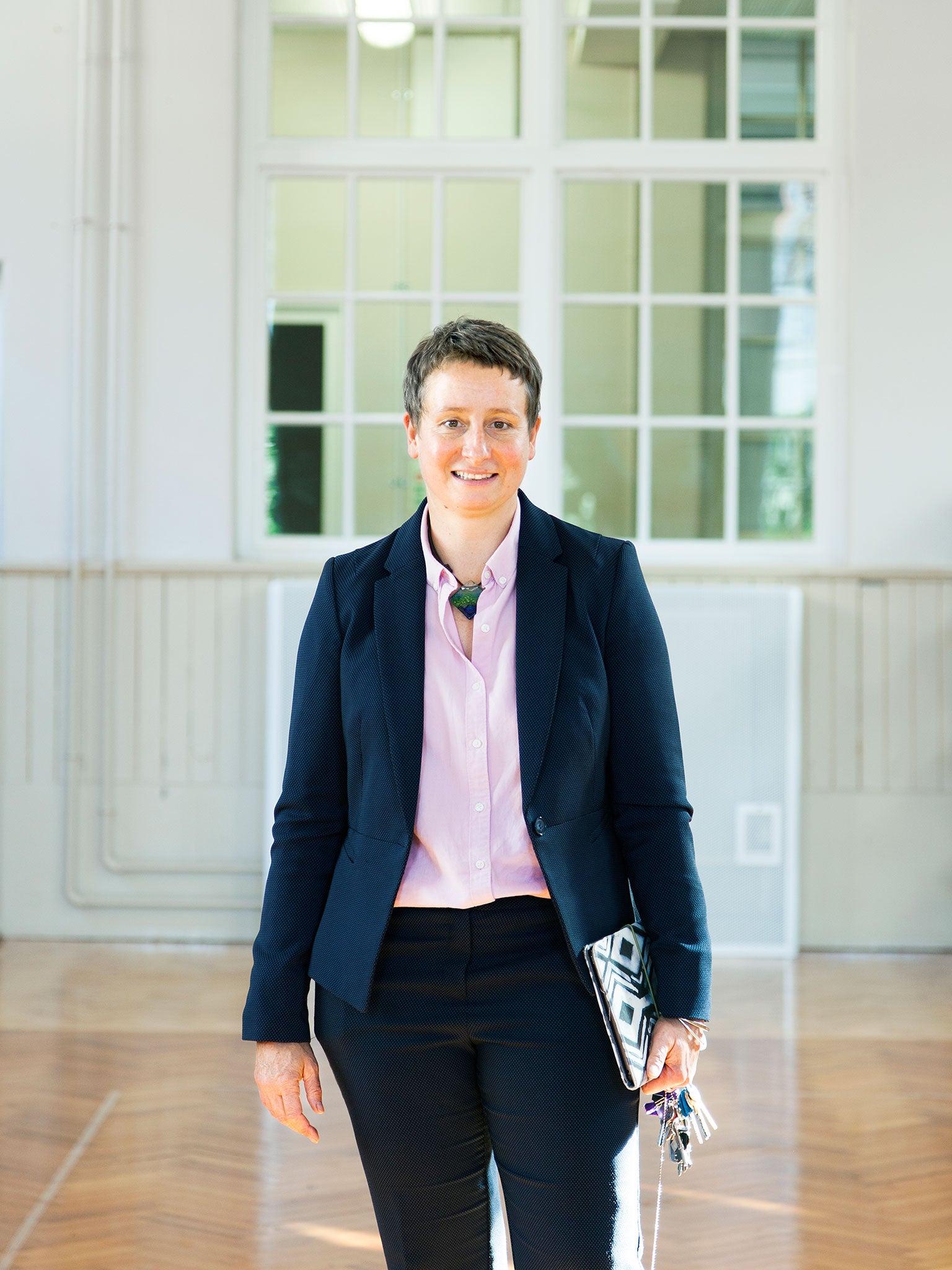
Lessons like this have helped The Pendlebury Centre achieve "Outstanding" in its past four Ofsted inspections. But fun, effective teaching is only half of what PRUs do. "When young people come to us we ask them what they want and they often say, 'I just want to be normal'," says Pendlebury's headteacher, Janice Cahill. "In their eyes, normal is just being able to come to school. These children are often here because they have had an emotional experience which they've struggled to come to terms with. Our job is to give them the space to do that while making sure their learning continues."
PRUs have repeatedly suffered at government hands. Despite outperforming mainstream schools in their Ofsted inspections, in the wake of the London Riots in 2011, Michael Gove the then Education Secretary, ordered a review of PRUs, dismissing them as "not up to snuff". The National College of Teaching and Leadership's Charlie Taylor – dubbed "the Coalition's top behaviour tsar" – decided to focus on the proportion of PRU students achieving five C grades or above at GCSE – which numbers just 1.8 per cent. Looking predominantly at the very worst PRUs, he branded the schools "holding pens" that consigned "thousands of children" to the "scrapheap". Pupils, he said, "become prolific at pool, or sit on Facebook all day, without making academic or any other meaningful progress."
It is a description to which many PRU teachers objected, arguing that GCSE results were an unfair criterion by which their schools should be judged. Often, children come to PRUs with unmet learning needs. Staff at PRUs are trained in psychological diagnostic techniques – and pupils are frequently found to have communication or educational difficulties. In many cases, these children have adopted bad behaviour as a defence mechanism. By acting up they distract teachers from the fact that they do not understand what they are being taught. Bradshaw says she has GCSE-age pupils come to her with the academic abilities of a primary school child. But there are also very able pupils and they will be reintegrated into mainstream schools to take their exams.
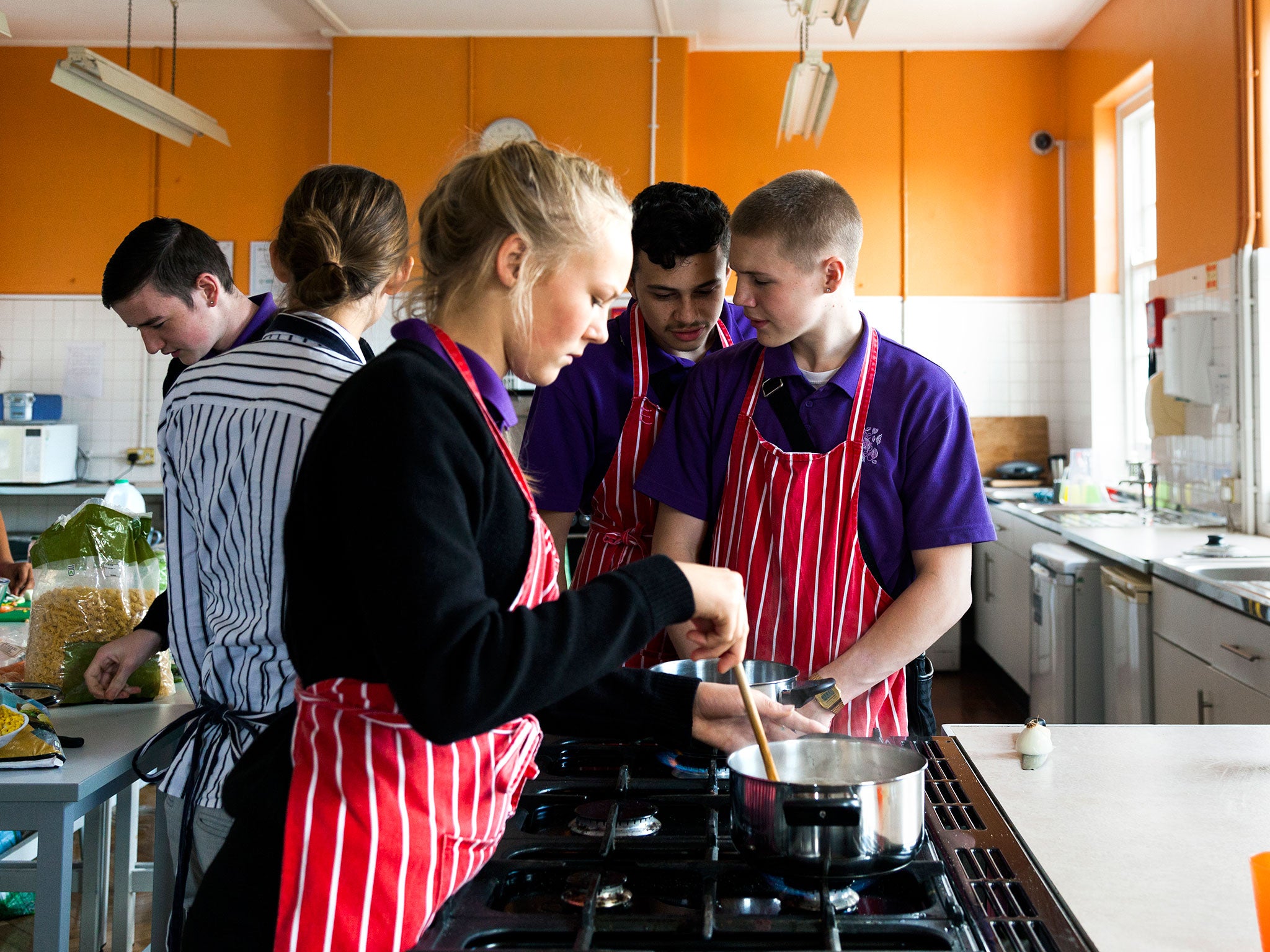
"For some of these kids, an E or G grade is something," says Bradshaw. "If you look at my rate of progress, it's outstanding. That's what Ofsted said. When we get hold of these students, they learn. And when they leave us they're much better placed for the world of work." Referring to "Maslow's hierarchy of needs" – a pyramid of life's necessities, comforts and luxuries – she says The Limes' first job is often to ensure that the bottom layer is in place – shelter, food and safety. Often a child's challenging behaviour can be down to something as simple as having come to school without breakfast.
Cahill echoes Bradshaw in calling out Taylor's report as unfair. "Schools are judged, historically, on their academic performance. I believe we should be judged on our academic and emotional performance... What's the point of a child getting nine GCSEs if they can't function in society to use them?"
PRUs only succeed with incredibly committed staff. All those I speak with identify tenacity and a thick skin as crucial to what they do. "Change isn't going to happen overnight," says Bradshaw. "It's a war of attrition – a dripping tap approach." If a pupil refuses to come to school, Bradshaw has been known to go to their home to see what's up. The common code of discipline at successful PRUs is that while misbehaviour will be punished, tomorrow always comes with a clean slate. Students receive unconditional second, third, fourth and fifth chances – and an acceptance of who they are, warts and all.
Many teachers are drawn to PRUs for both the challenges and rewards they offer. For Cahill, who is 57, her own resolve was hardened through tragic personal experience. Shortly after starting as a teacher at Pendlebury, her husband was killed in a car accident. "I was left with two small children," she says in a slow, measured voice. "That has been a motivation to me. Young people have horrendous experiences that we as adults would struggle with, yet they show such resilience. My children have grown up and we've worked together and had that network of support which not everybody has. I had a personal experience that could have decimated my life and I turned that to something positive. I'm not being saintly. But it has drawn me to work with people who have had the toughest of times."
A range of schools offering alternative approaches exist in the PRU sector. The Boxing Academy in Hackney uses sport to help disruptive young male students regulate their behaviour. Liverpool's Everton Free School, set up by Everton FC, will use football to re-engage excluded children with education. And the Family School in Streatham, south London, puts a strong emphasis on mental health therapies, and is unique in bringing children's family members into the classroom. Then there is the Ian Mikardo School in east London and Kilgarth School in Birkenhead, Merseyside, both of which follow a discipline-free agenda. Both are classified as special schools for children with socio-emotional behavioural difficulties, or SEBD schools. They operate with neither school uniforms nor set punishments yet achieved "Outstanding" in their Ofsted reports.
"When you have kids who end up in a school like Ian Mikardo you have to do something more deep-rooted than focus on discipline and uniform," says the school's headteacher, Claire Lillis. "I've worked with some of the country's most damaged children. If you remove these children's liberty you continue to punish them."
A minority of PRUs do still fit the unreconstructed view of the sector drawn on by Gove and Taylor. In extreme cases, local councils, in the absence of a better option, or tempted by cut-price provision, will send children to unregistered facilities. These are often sports or youth clubs that will take responsibility for these children – but are closed off from scrutiny.
In acknowledging the success of many PRUs, it is impossible to ignore the high staff-to-student ratio. The Pendlebury Centre makes use of drama therapists, a cognitive behavioural therapist, a bereavement councillor, social workers, a family liaison worker, a psychotherapist for the children and another for the staff. Yet Cahill says she falls well short of the average PRU spend-per-pupil of £15,000 – which itself compares to a national mainstream school average of just under £5,000.
As in the case of Kirsty and Ben, a good PRU plays a symbiotic role in the local network of child support services. As both the need for and the expectations of PRUs increase as the cuts kick in, that network is beginning to fray, according to many head teachers. "Need is rising," says Lillis, who says that she has one child who has had to move four times in the past year because of the bedroom tax. "The economic climate is driving it. You have more deprivation and poverty. That leads to more stress in families, which leads to more behaviour issues in kids."
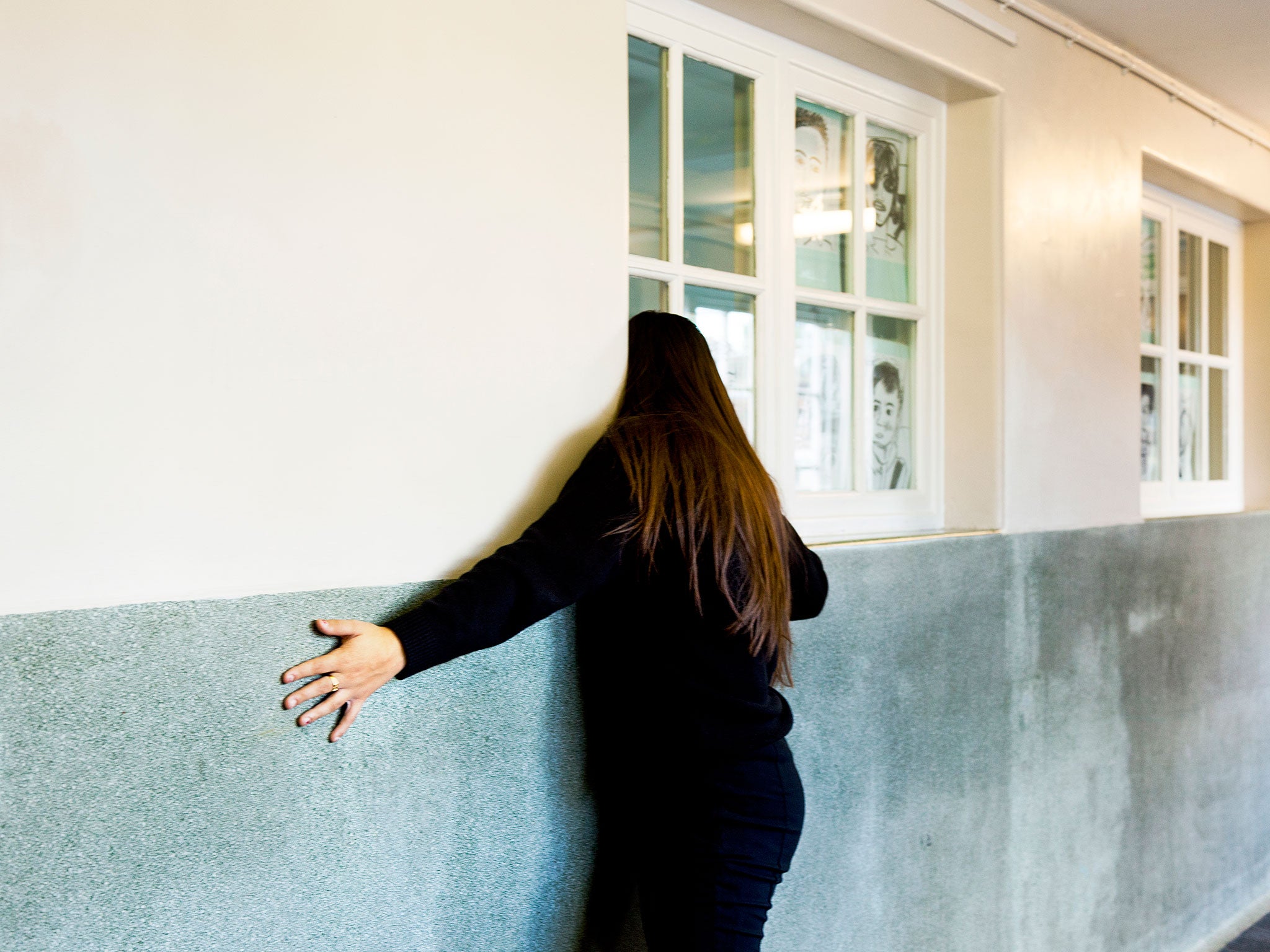
At The Limes, the effects are already being felt. Until three years ago, the school would consistently begin the year with 50 to 60 pupils, that figure rising to 120 as children were expelled from mainstream schools over the year. "That was a cycle that was healthy and worked," says Bradshaw.
Then, in 2013, that starting figure of 50 to 60 number jumped to 80. In 2014, it dipped to 73 before this year shooting up to 92 – pushing up towards the school's capacity. Bradshaw predicts that The Limes will be full by Christmas. "Youth services, youth offending teams, preventive services in social care, counselling, family therapy, those sorts of early intervention services have been massively cut," says Bradshaw. "That is having an impact. We are having to use educational resources to recreate some of those services in places like PRUs."
This increase is partly due to changes in expulsion guidelines, but cuts to mainstream schools are not helping. Local education budgets are theoretically ring-fenced from government cuts. In reality, with wage, National Insurance and pension increases, somoe schools have seen double-digit cuts. Bradshaw, who is on Sutton's school funding forum, says 70 per cent of the borough's mainstream schools will post a budget deficit this year.
It is an interesting quirk of PRUs that they are trying to do themselves out of a job. In an ideal world, all of their children would be reintegrated into mainstream education. More and more, they are working on outreach projects, taking their learning into mainstream schools. At Pendlebury, Cahill has devised something called Jigsaw, a programme to train mainstream teachers in handling the worst behaved students. It is a move that the Department for Education is behind. In his report, Taylor recommended that trainee teachers spend time at a PRU. Yet, with other services being pulled back, this is something of a sticking plaster.
Three weeks after my first visit, I phone Bradshaw. The Limes now has 106 children on its register. Kirsty has been placed with a foster family in another borough but remains on The Limes' register. Ben, on the other hand, is about to be reintegrated into a local mainstream school. It was deemed that the pair were better educated apart. In PRUs, progress is achieved even if it has to be constantly striven for.
Join our commenting forum
Join thought-provoking conversations, follow other Independent readers and see their replies
Comments
Bookmark popover
Removed from bookmarks